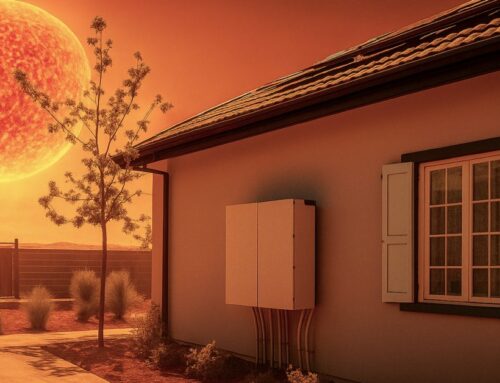Official media presents Ciego de Ávila as a model in solar energy, but the locals refute t
June 22, 2025
A recent note from the Canal Caribe has presented Ciego de Ávila as one of the most advanced provinces in Cuba in the use of renewable energy sources. According to the television report, the territory could become one of the first in the country to meet its electricity demand during peak noon hours thanks to its solar parks.
The information piece highlighted that the “Carolina” solar park has generated over 466 MW since its launch, and that Ciego de Ávila currently has an installed capacity of 52 MW in photovoltaic energy.
Local authorities assure that more than 50% of the electricity demand between 1:00 and 2:00 p.m. would be met by this source.
Furthermore, the construction of new parks was announced, which in 2025 would raise the capacity to 108 MW, supposedly allowing to meet the entire electricity demand at noon.
However, while the official press celebrates these figures as a strategic achievement, the people of Ciego de Ávila react with outrage and skepticism on social media. “Here in Ciego de Ávila, there are only three hours of electricity per day,” commented a user. Another was more emphatic: “I don’t remember the last time we had electricity for an entire midday.”

Citizen criticism indicates that prolonged blackouts, lasting up to 15 hours in some areas, refute any discourse on energy self-sufficiency.
“Stop deceiving the public by saying that the parks meet the demand of the province. This is distributed across the entire country, primarily to Havana, which consumes the most and suffers the fewest cuts.”, wrote another visibly upset commenter.
Several users have also highlighted the human cost of the energy crisis, mentioning the difficulties in caring for the sick and elderly, the inability to preserve food, and the deep emotional exhaustion that comes from living under extreme conditions. “It’s a tragedy to live in Cuba. I’m not ashamed to say it; it’s the truth, and the truth must be told. Mercy,” expressed a woman in a desperate tone.

This type of triumphalist discourse is situated within a political context where the regime has intensified its propaganda machinery to celebrate that Ciego de Ávila has been designated as the venue for the official activities of July 26.
On June 14th, after the news broke, amid a blackout, the authorities deployed a caravan of motorcycles and Ladas, honking their horns, waving flags, and chanting slogans with scarcely any visible enthusiasm.
The show stood in stark contrast to the darkness enveloping the province, with food shortages, issues in the supply of drinking water —only receiving 280 liters per second of the 600 needed— and near-constant blackouts.
A video sent to CiberCuba by a neighbor showed the official caravan moving while the city remained in darkness. The popular reaction was one of indifference, frustration, and rejection.
The ruler Miguel Díaz-Canel himself congratulated the province on X (formerly Twitter), stating that the recognition is due to the “effort, perseverance, and talent of its people.” However, for many residents of Avila, those words are just another insult.
Far from generating trust or hope, the official report seems to have intensified public annoyance. While there are discussions of achieved targets and investments in clean energy, the population is experiencing the opposite: darkness, heat, and an increasing sense of abandonment.
Is it true that Ciego de Ávila could be energy self-sufficient with solar power?
No, the energy self-sufficiency of Ciego de Ávila is highly questioned due to the prolonged blackouts experienced by the population. Despite advancements in solar energy, power outages and uneven distribution continue to severely affect the people of Ávila.
How do the people of Avila react to claims of progress in solar energy?
The reaction of the Avileños is one of indignation and skepticism. Many residents report that, despite claims of progress, power outages are frequent and prolonged, which contradicts the statements of energy self-sufficiency promoted by the government.
What are the main criticisms of the Cuban government regarding the energy crisis?
The main criticisms focus on the lack of transparency and ineffective management of the national electrical system. The population accuses the regime of prioritizing propaganda over real solutions, while living conditions worsen with constant blackouts and shortages of basic resources.
What is the impact of solar parks on the daily life of Cubans?
The impact of solar parks on the daily lives of Cubans is limited and does not address the energy crisis. Although multiple parks have been built, solar generation remains insufficient to meet demand, and blackouts continue to severely affect the population.
Search
RECENT PRESS RELEASES
Related Post




